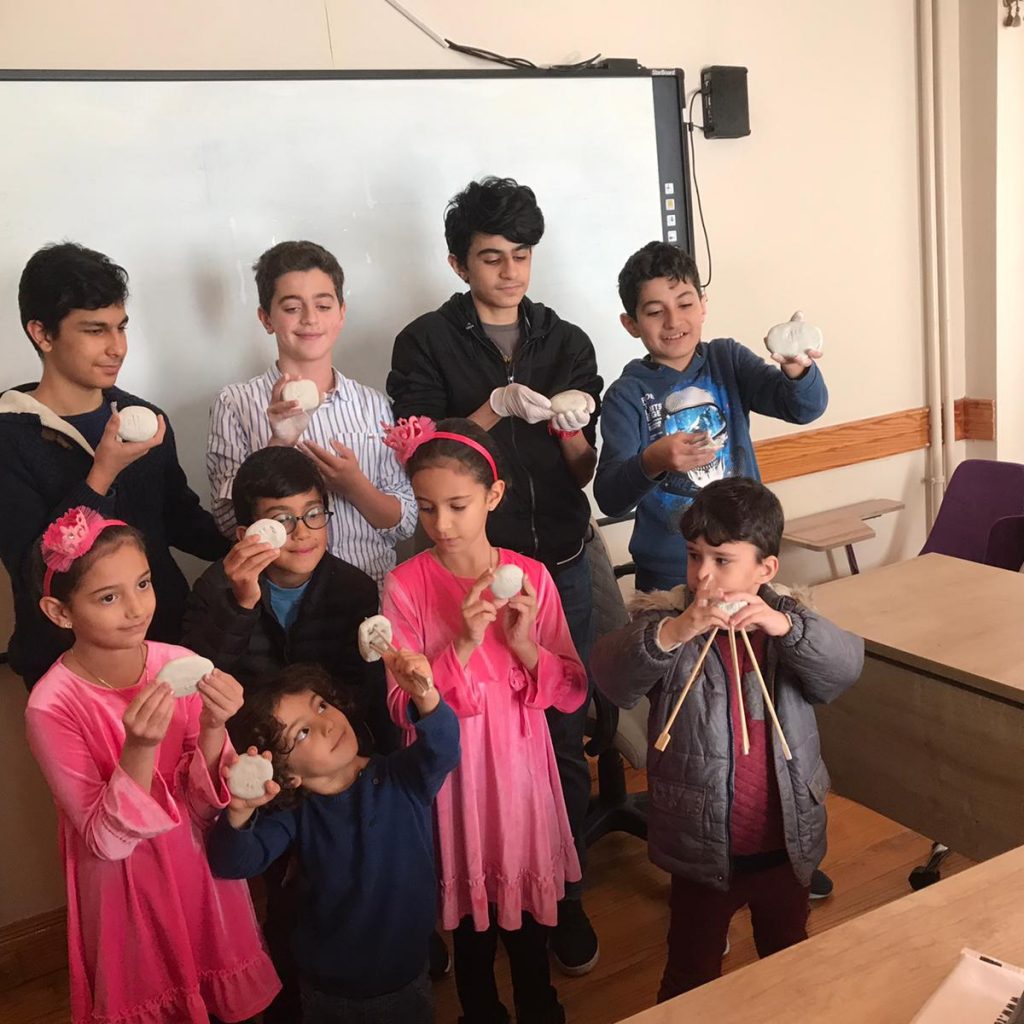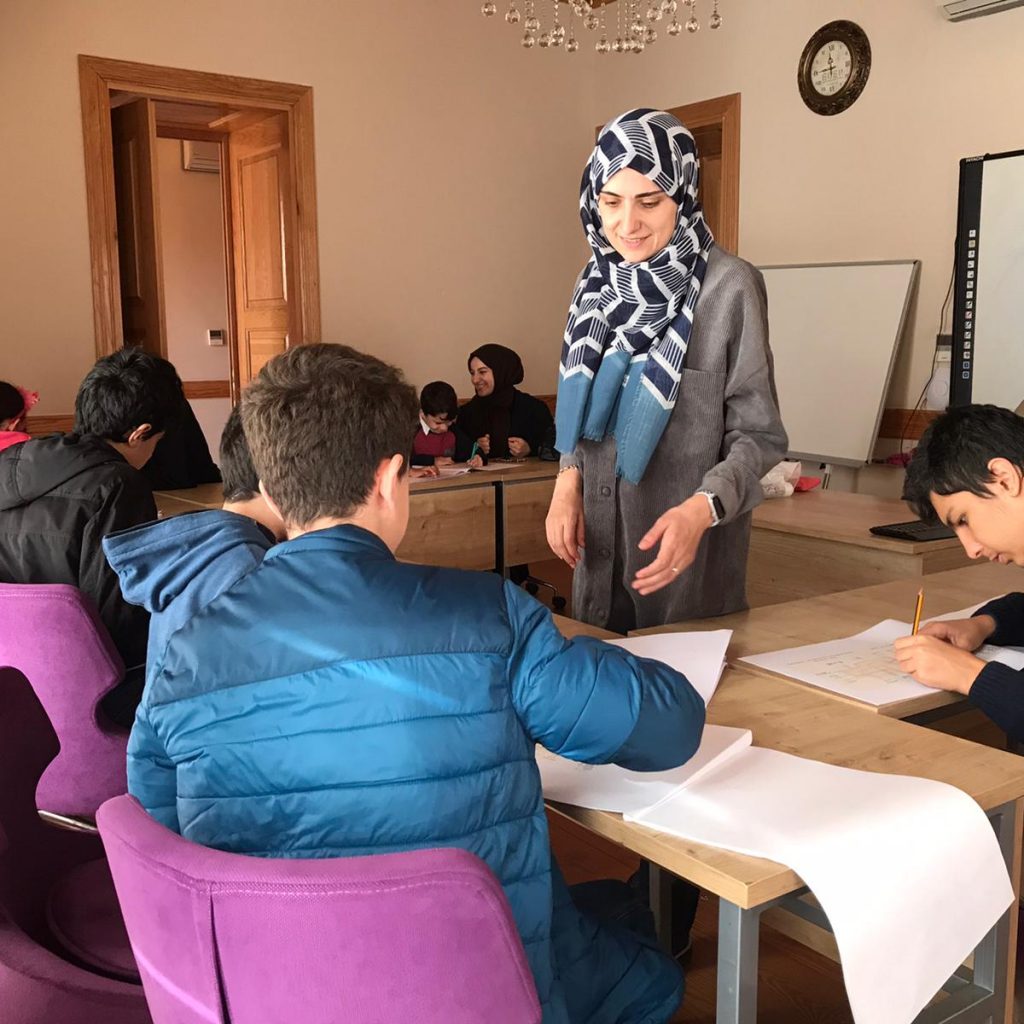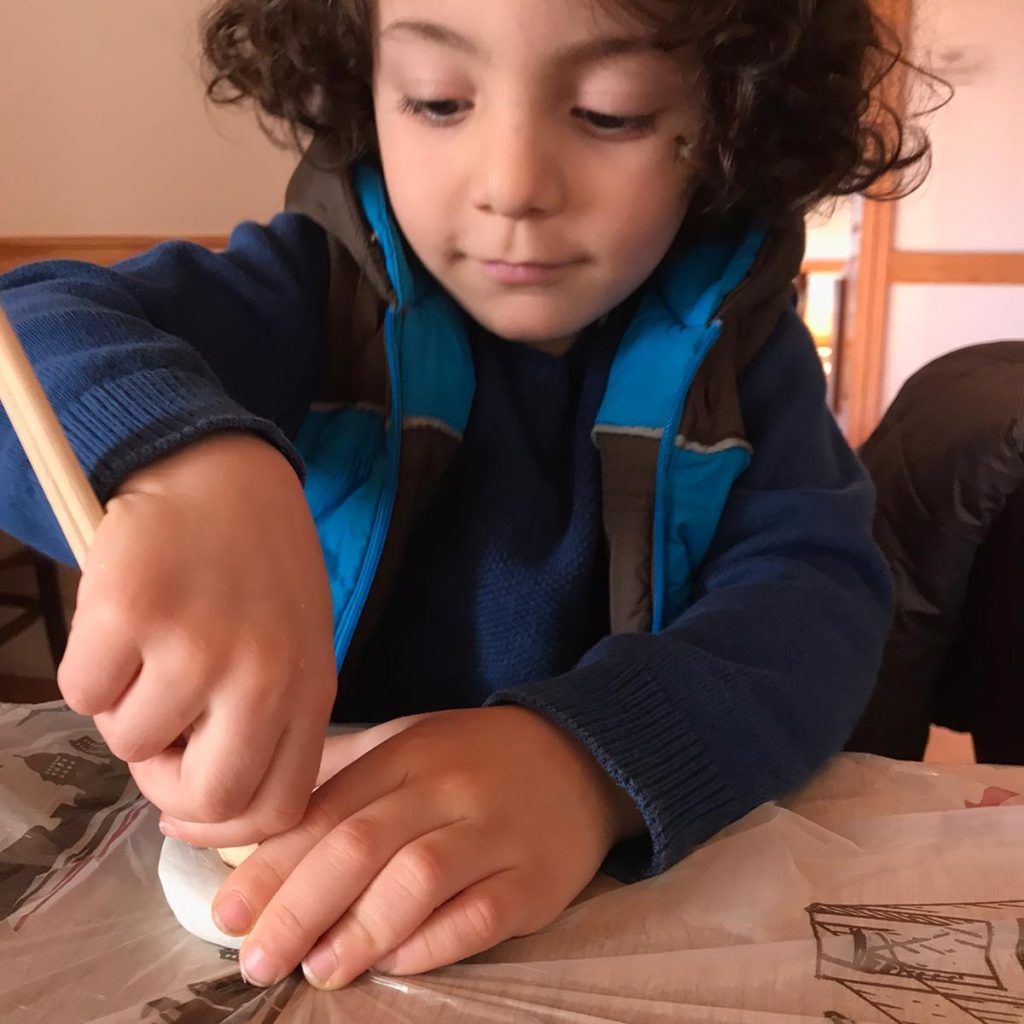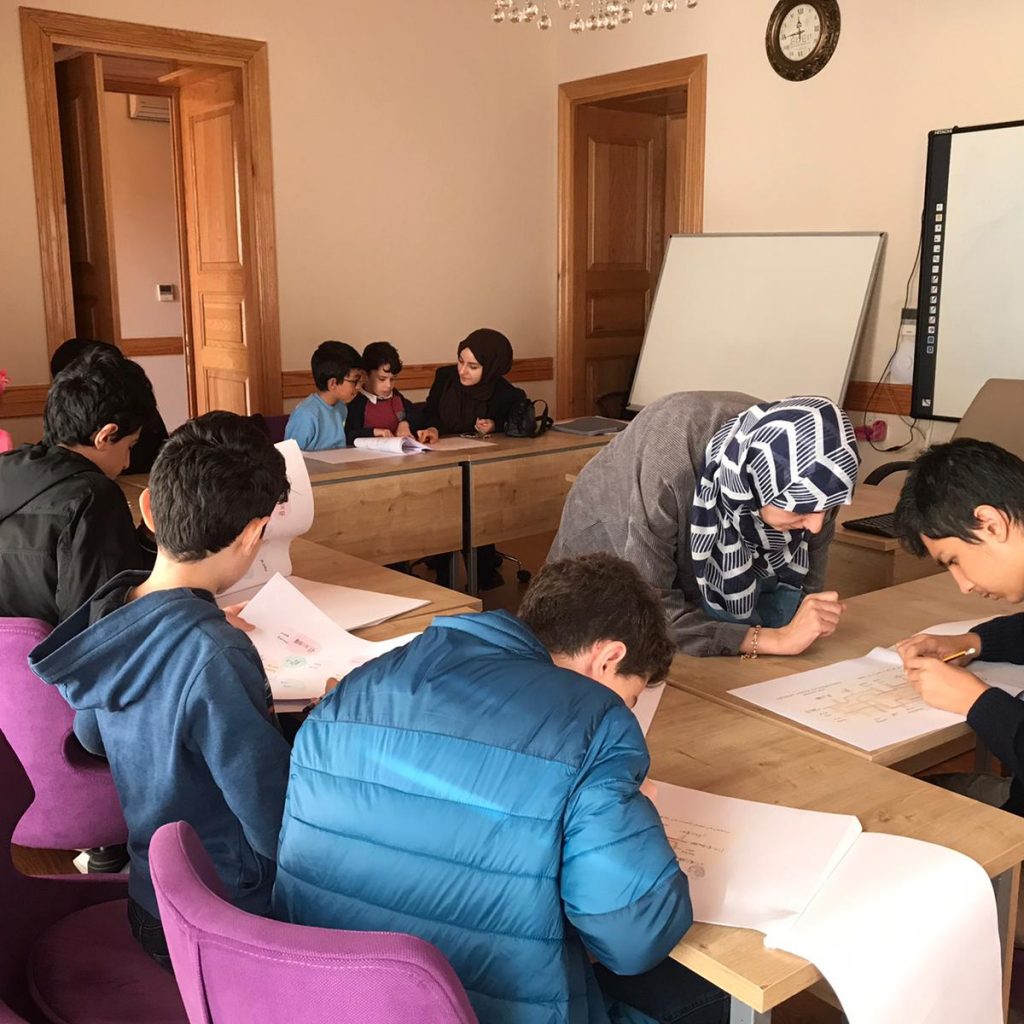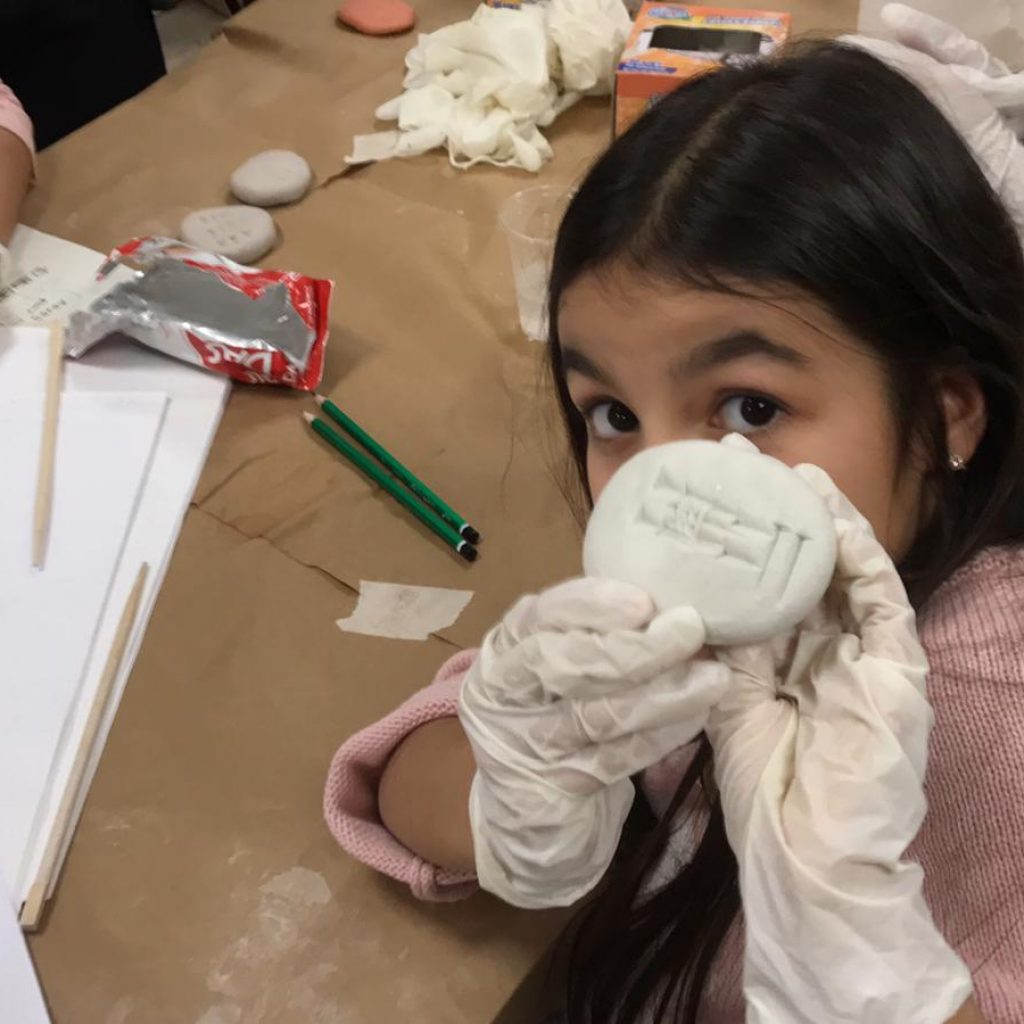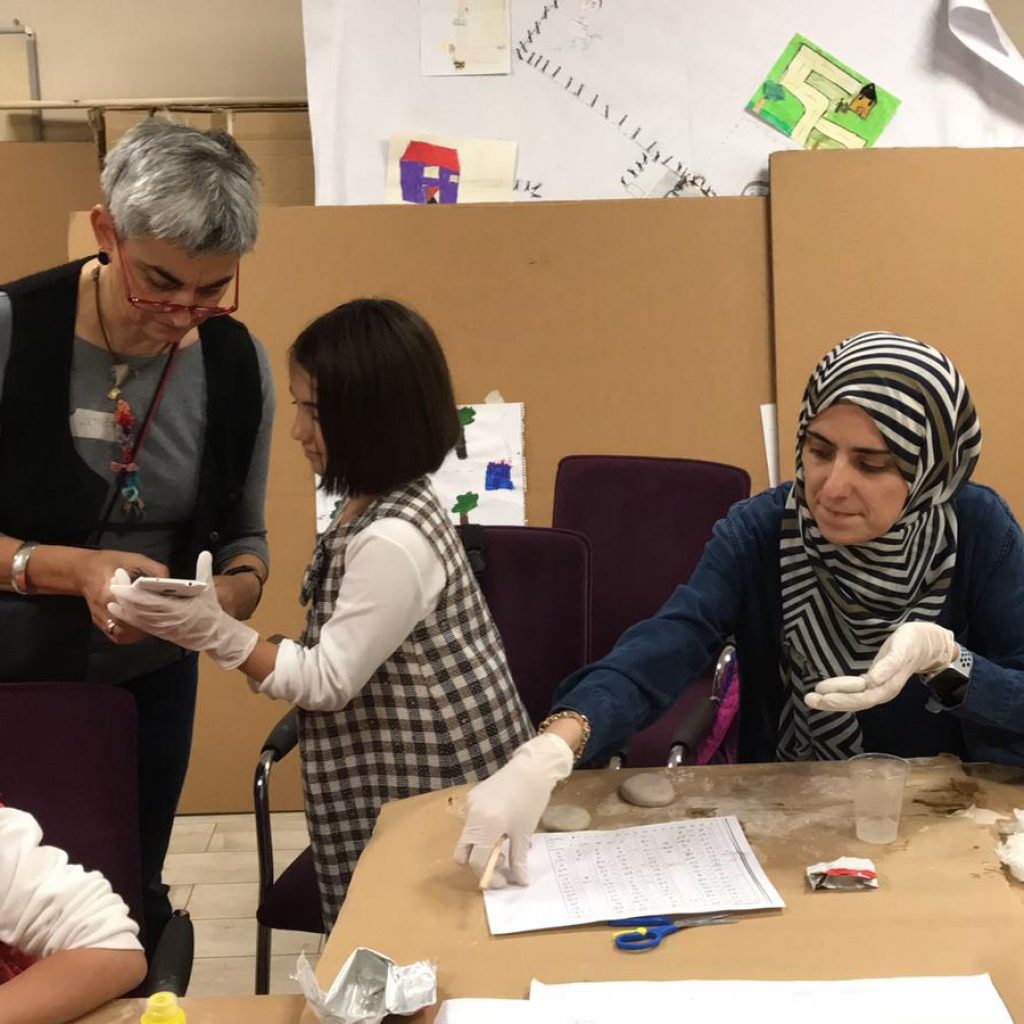“Magical Words” a Syrian project introduces children to the archeology of their country
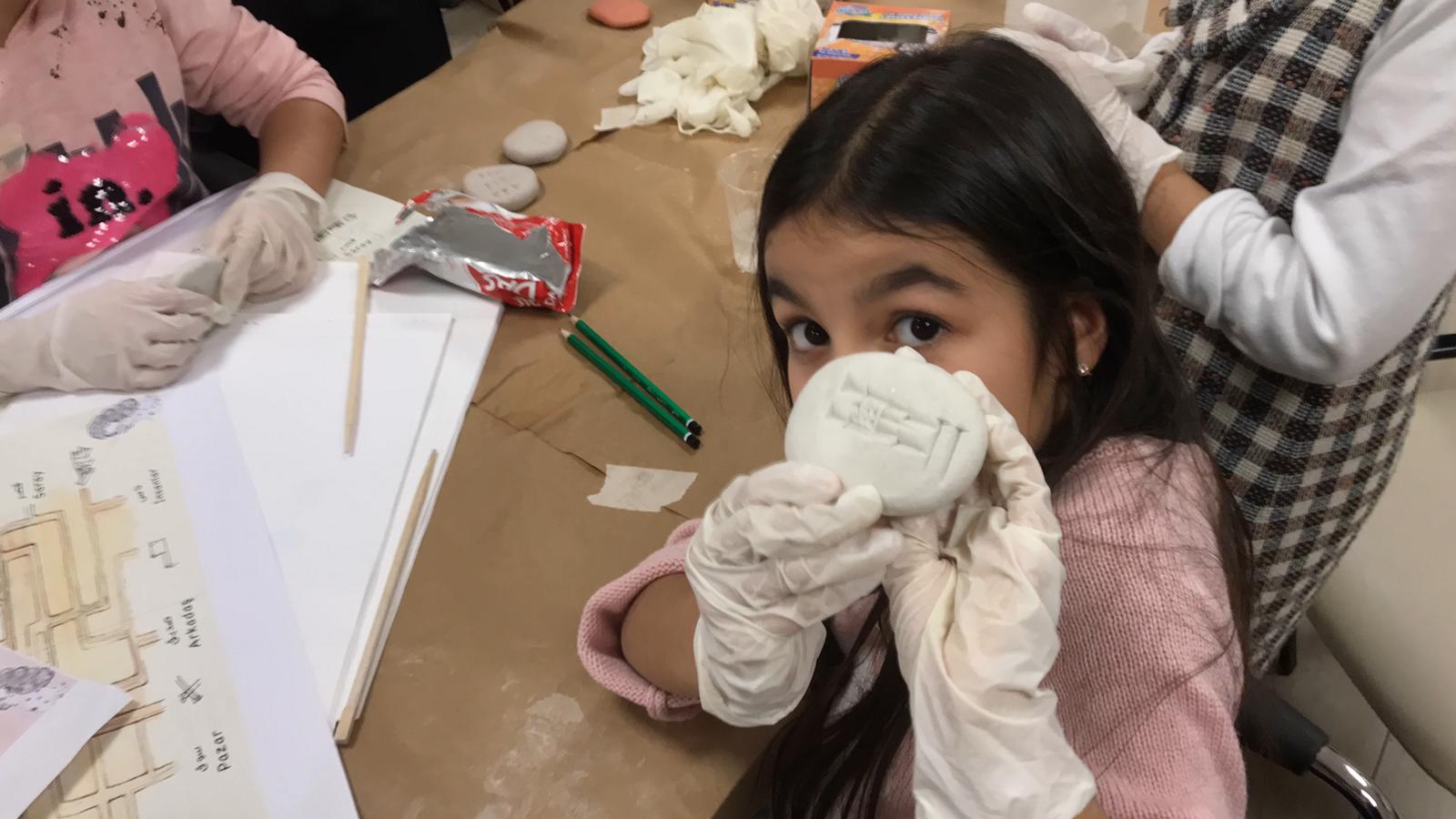
Choosing not to remain indifferent to the calamities inflicted on the Syrian children who suffered from homelessness and diaspora beyond their homeland borders, Syrian architect Lamis Kadah embarked on an ambitious quest hoping to lend a helping hand to those children. To make this come true, she has launched a creative initiative aiming at introducing their motherland and its great and rich history to those children.
“I graduated from the faculty of architecture then went through a sluggish journey pursing a goal or a mission for my career. A conflict arose between my passion for architecture and the tough reality of the difficulties to find a job that would fulfill my ambition. A unique approach emerged to me from the middle of nowhere; that was writing and designing children’s stories.” This was how Kadah introduced herself to Tiny Hand.
An architect and a mother, “her quest to introduce Syria to the Syrian children might instill a potential interest in their hearts and minds to help rebuilding it in the near future.”
The Syrian young woman developed an amuzing educational book about the archaic Eblaite language.
This book is like a story parents and teachers can tell since it is rife with information about the city of Ebla. A glossary of terms defining the meaning of words is also provided to help parents and children understand the content. In the appendix of the book, there are two playful activities to help children linking words together in a game.
Ebla was one of the earliest kingdoms in northwestern Syria and it flourished in 2500 B.C.
Ebla’s History as Ancient as Time
The primary aim of Kadah’s project as to offer an educational content that introduces the Syrian history and heritage to the Syrian children. As a project, it was too large to be executed in two years only and by one sole individual. Consequently, the Syrian architect, who is based in Turkey, started introducing some Eblaite words to the children by developing stories in this context.
Being a newbie in writing children’s story books, her top priority was to dig deep into the children’s literature to attempt to understand children-targeted content and its distinct characteristics. With scarce publications about the city of Ebla, she eventually decided to write a book about it highlighting its historical importance.
“She collaborated with researchers and archaeologists who worked in the city of Ebla. She came to know many people who have projects relevant to the city to ensure her work is comprehensive. Finally, her book, entitled Magical Words, which gives children access to Ebla and its language, was published. The Eblaite language is an archaic Semitic language, probably the most ancient to survive in substantial form in Syria, Lamis Kadah told Tiny Hand.
The multilingual book was published in two versions: a German-Arabic version and a Turkish-Arabic one. It was also turned into a video and a website that offers interactive games teaching children the words in the book.
The book is part of a larger project, named Stewards of Cultural Heritage (SoCH), funded by the German Gerda Henkel foundation and the German Ministry of Foreign Affairs under the supervision of the German Archaeological Center in Istanbul.
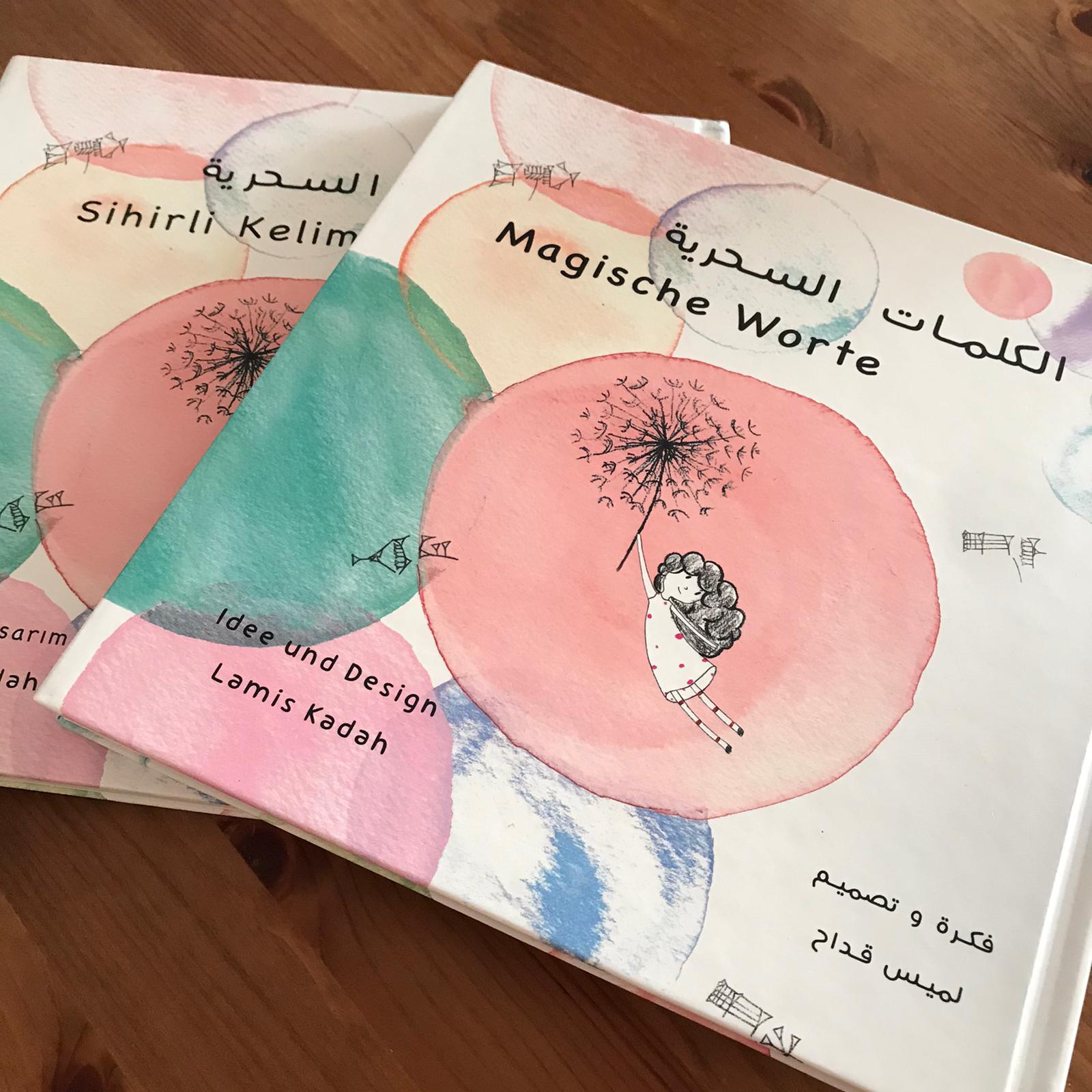
The aim of the project is to finance five projects in order to support Syrian archaeologists and architects in Istanbul. The book of Kadah was one of these projects. It was given the approval since it was the only children-targeted book and because the supporters believe in the importance of the idea and the significance of educating children about Syria.
Children of Syria … You’ll be Back to Homeland
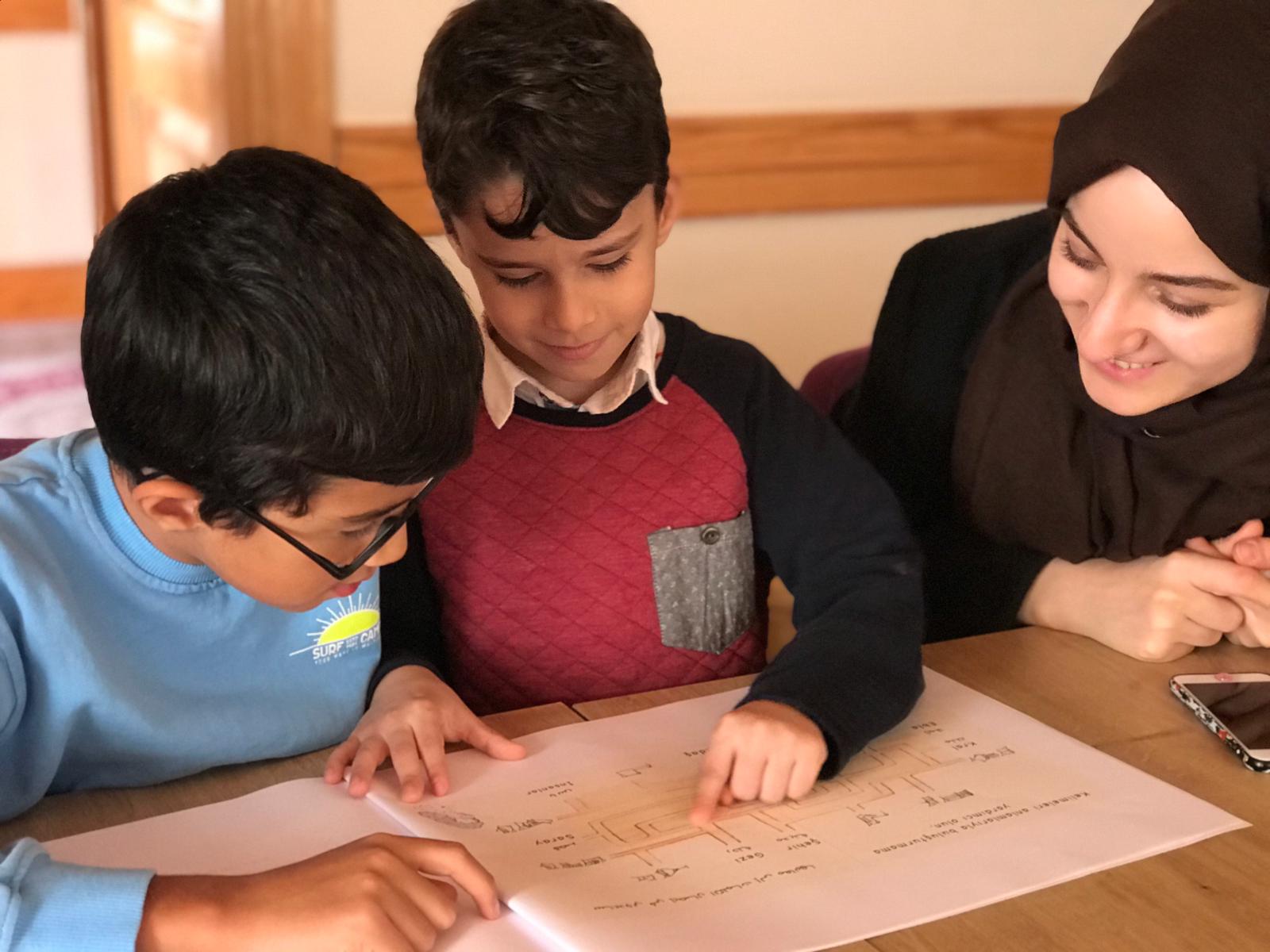
Lamis Kadah wishes to connect the Syrian children to their homeland and introduce them to its legacy and monuments. The book offers them the opportunity to view the other side of Syria — the side of their homeland which they have never known or seen before over the last decade after they had sorrowfully left it with no memory of it.
“I was considerably motivated by the reality lived by the Syrians and a strong desire to preserve the Syrian heritage. I felt a strong sense of duty towards the Syrian children and the next generation to introduce to them our history and give them an idea about the destruction which damaged the Syrian antiquities and the theft of many artifacts,” said Kadah.
The project is currently suspended, however, Kadah hopes it will be resumed and further developed. She also aspires to develop a platform offering information, activities, and stories to introduce history to the Syrian children with contributions hopefully to be received by the platform from artists, authors, architects, archaeologists, and many others who are interested in appreciating an out-of-the-box content.
At the end of her interview with Tiny Hand, Kadah said: “Our children need to be connected to their identity. I wish parents become aware of the importance of introducing our motherland to their children. Maybe one day they will return to it and participate in reconstructing it again and preserving the splendor of its history and the beauty of its antiquities.”
Tags
Related Posts
Surviving war in Damascus
In the heart of Old Damascus,, where life is marked by challenges and hardships, lives Maya. At just 14 years old, she carries burdens far beyond her years. Surviving war in Damascus Maya's Journey: Becoming the Strength of My Family Through Collecting Cardboard Enter keywords…
March 10, 2025Tiny Hands, Heavy Burdens: A Child’s Life on the Construction Site
At five in the morning, we met Issa in his modest, rural home in al-Karamah area of the Raqqa countryside. The early breeze bit into our faces as Issa finished breakfast with his brothers and father. Dressed in a red shirt, he had pulled on a light cotton jacket to shield himself from the morning chill….
March 10, 2025
